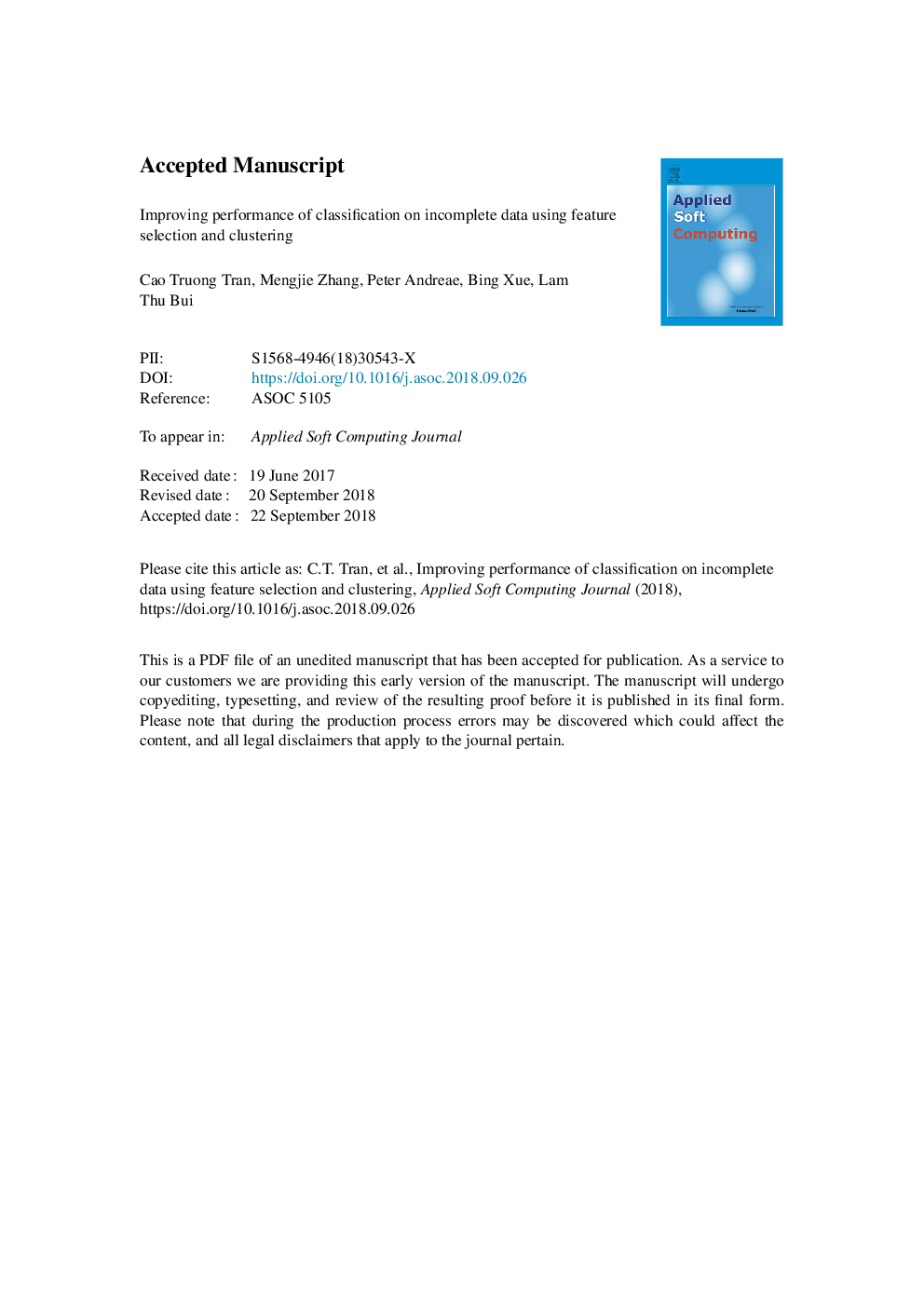| Article ID | Journal | Published Year | Pages | File Type |
|---|---|---|---|---|
| 11031608 | Applied Soft Computing | 2018 | 42 Pages |
Abstract
Missing values are an unavoidable issue in many real-world datasets. One of the most popular approaches to classification with incomplete data is to use imputation to replace missing values with plausible values. However, powerful imputation methods are too computationally intensive when applying a classifier to a new unknown instance. This paper proposes new approaches to integrating imputation, clustering and feature selection for classification with incomplete data in order to improve efficiency without loss of accuracy. Clustering is used to reduce the number of instances used by the imputation. Feature selection is used to remove redundant and irrelevant features of training data which greatly reduces the cost of imputation. The paper also investigates the ability of Differential Evolution (DE) to search feature subsets with incomplete data. Results show that the integration of imputation, clustering and feature selection not only improves classification accuracy, but also dramatically reduces the computation time required to estimate missing values when classifying new instances.
Related Topics
Physical Sciences and Engineering
Computer Science
Computer Science Applications
Authors
Cao Truong Tran, Mengjie Zhang, Peter Andreae, Bing Xue, Lam Thu Bui,
